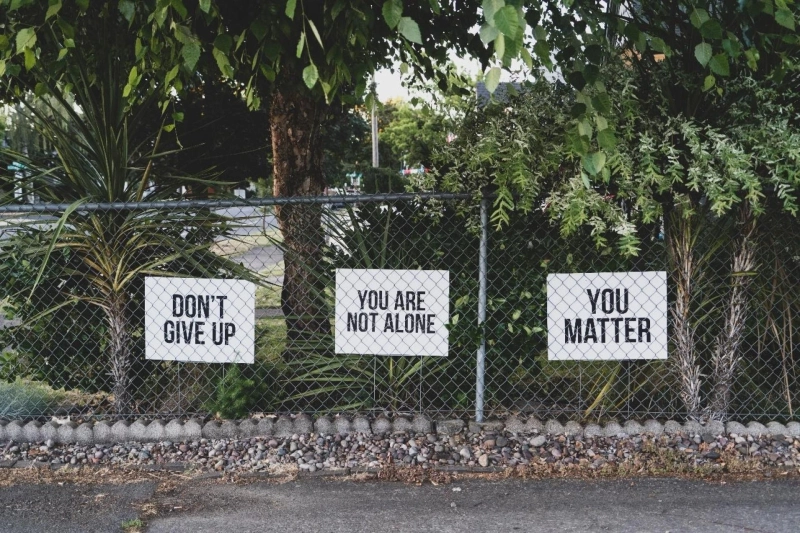Although there is less stigma around mental health, statistics show that only 40% of people who need professional help end up being treated, and this can take a serious toll on their health, families, and social life. Even in this day and age, telling someone that they should see a therapist is considered rude or taboo, and many people live with the idea that certain negative thoughts are a normal part of everyday life, when in fact they may point to a serious mental health issue.
No matter how social media distorts our perception of reality, no one has a perfect life and challenges will always come your way. Difficult life events are inevitable. Living in fear of them and running from them won’t make them any better but what you can do is learn how to cope with them and, as hard it might seem, use them as an opportunity for self-growth.
If you are going through one of these situations, seeing a therapist can help you make sense of your emotions and address your symptoms in a constructive way.
[caption class="snax-figure" align="aligncenter" width="662"][/caption]
You are overcome by stress and anxiety
Modern life and overtime work culture have normalised stress to the point that it’s almost peculiar not to struggle with it. However, stress can become a crippling emotion that leads to anxiety and affects the way you perceive life. We all get sad or angry from time to time, but chronic stress can make everyday events feel more intense and affect your ability to function. According to a YouGov study, a whopping 74% of adults have experienced overwhelming stress levels in the past year alone. If stress and anxiety affect your ability to focus, interact with others, and you constantly feel like something’s wrong, talking to a therapist can help you understand the cause and cope with it in a healthy way.
You’re struggling with addiction
People often assume that addiction is a sign of weakness, bad upbringing, or negative influences and that it can be cured by will alone. In reality, addiction is a complex health issue and, many times, it appears as a coping mechanism after a traumatic event or stressful period. If you’ve found it hard to control your alcohol intake and never seem to relax without a glass of alcohol, talking to an addiction counsellor can help you improve your situation.
Alcohol and drugs aren’t the only warning signs, however. Psychologists point out that any substance or habit can become addictive and thus harmful: binge eating, gambling, sex, extreme sports, video games, even the Internet. When one or more of these takes control over your life and you constantly use them to get away from your problems, they’re no longer just a hobby and they should be treated before they escalate.
You’re going through a divorce
Regardless of the age at which it occurs, divorce can be a traumatic life event and many people feel emotionally drained at the end. Divorce can leave your feeling lonely, betrayed, broken, powerless, angry, and resentful, and all of these negative emotions can prevent you from moving on and rebuilding your life. The period after the divorce is often a vulnerable one, when you find it hard to trust others and love yourself. Time heals all wounds, but there is nothing wrong with asking for professional help – especially if kids are involved too.
You lack focus and feel disconnected
This symptom can be pretty hazy and hard to pinpoint because, in most cases, your outlook towards life doesn’t change from one day to another. You may feel like everything is normal, until one day you realise that you can’t focus at work, can’t connect with your loved one, and haven’t called your friends in months. Most people assume it’s just a bad day and let it pass, but when one bad day turns into a bad year, it’s time to talk to someone and get down to the root of the problem.
The support of friends and family is no longer enough
Friends and family are your natural support system and their help remains invaluable even when you already have a therapist. Calling your best friend when you have an existential dilemma and talking about the things that bother you is often the first step towards solving your problems, but there is a limit to how much friends can listen and help. When your loved ones have exhausted just about every piece of advice and stop returning your calls, they may feel overwhelmed and worried themselves. In time, this can affect your social life, and make you isolate yourself. Friends and family are usually the first ones to notice when something feels “off” about your behaviour, so if you’ve been hearing that you should see someone about it, or they’re legitimately concerned about your wellbeing, listen to their advice.
You’re coping with the loss of a loved one
There’s no such thing as a good moment to lose someone you love. The death of a friend and family member can leave you alone and devastated and coping with the bereavement process can be a challenge for the strongest and most mentally stable of us. Healing is often delayed by our poor understanding of loss. People assume that grief is something you grow out of after experiencing its five stages, but, in reality, grief is much more complicated. There is no right and wrong way to grieve and people don’t experience these stages in the same way. Talking to a therapist can help you understand the emotions you feel during bereavement, come to terms with the loss of a loved one, and learn how to move on without burying the pain deep inside and resorting to unhealthy coping mechanisms. Even if you think you’re doing just fine, seeing a therapist or grief counsellor alone or with your family will make it easier to cope.


